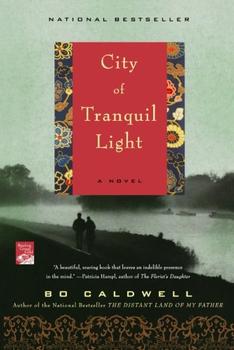Summary | Excerpt | Reviews | Beyond the book | Read-Alikes | Genres & Themes | Author Bio

Dennis Bock imagines the life of the
historical Norman Bethune, keeping the essence of
history intact but playing fast and lose with the details.
Details that some might
consider rather central - such as the fact that the
entire novel is addressed to Bethune's daughter who
he never met - but, historically speaking, never had.
In his few spare minutes from the Chinese battlefield
hospitals, Bethune writes to his daughter about his
childhood, his failed marriage, his time in Franco's
Spain and the siege of Madrid, and the futility of
war; vividly describing the horrors of the Spanish
Civil War and the terrible sufferings of the Chinese
peasants stuck between Mao's revolutionary army, the
Nationalist army and the Japanese.
In addition to providing an "eye-witness" record of
the carnage of war, Bethune shows himself to be a
selfless idealist (albeit complex and contradictory)
who set out to do good, but was beaten down by
the reality of a very ugly world. Bock puts
Bethune's strong left-leaning political views into
the context of the day and shows them to be not only
honorable but rational when faced by both the wave of
fascism sweeping central Europe and the Great
Depression that many, including Bethune, saw as the
failed experiment of capitalism.
A novelist must be allowed some leeway to carry out
his craft, and there is no firm evidence that somewhere
in the mess of the Spanish Civil War Bethune
didn't meet a woman and didn't have a
child. But it seems a pity that Bock built the story
around this particular fictional device because it
has caused some critics to conclude that, in failing to return to his
motherless daughter, Bethune is all too human but
not sufficiently humane. Thus, in the eyes of
many readers, the real Bethune will be tarred by the same
brush as his fictional counterpart.
The Communist's Daughter is a powerful novel
that grows on the reader. My eventual
enjoyment and appreciation of the book would have
come earlier if I had known more about the real-life
Bethune, in order to put the events of the novel
into better context. So that you do not
find yourself in a similar situation, there's a
brief biography of Bethune in the sidebar.
Dennis Bock was born on the north shore of
Lake Ontario, in the small town of Belleville.
His family moved to Oakville, just
west of Toronto, when he was six. He entered the
University of Western Ontario after high school, and
took one year off during that time to live in Spain.
In 1989, he returned to Madrid for 5 years after
graduating with an Honors BA in English and
Philosophy. In Madrid he began writing his
collection of connected stories, Olympia, and
worked on it while in residence at Yaddo, the Banff
Centre and the Fundacion Valparadiso, Spain.
It was published in 1998 and won several prizes in
the UK and Canada.
His first novel,
The Ash Garden, was a #1 national
bestseller. His second novel, The Communist's Daughter was
published in hardcover 2006 in Canada, and 2007 in the USA.
He lives with his family in Guelph, Ontario.
"Charity should be abolished; and be replaced by justice." - Norman Bethune.
"We go to the people!... Look out the windows - a whole street of houses. That's where the doctor must go. Into every house, into every city, into every village. From door to door. We take medicine right down to the last individual..." - Norman Bethune, 1935.
![]() This review was originally published in The BookBrowse Review in March 2007, and has been updated for the
April 2008 edition.
Click here to go to this issue.
This review was originally published in The BookBrowse Review in March 2007, and has been updated for the
April 2008 edition.
Click here to go to this issue.

If you liked The Communist's Daughter, try these:

by Nicole Mones
Published 2015
In this stunningly researched novel, Nicole Mones not only tells the forgotten story of black musicians in the Chinese jazz age, but also weaves in a startling true tale of Holocaust heroism little-known in the West.

by Bo Caldwell
Published 2011
Inspired by the lives of the author's maternal grandparents - City of Tranquil Light is a tender and elegiac portrait of a young marriage set against the backdrop of the shifting face of a beautiful but torn nation.
Your guide toexceptional books
BookBrowse seeks out and recommends the best in contemporary fiction and nonfiction—books that not only engage and entertain but also deepen our understanding of ourselves and the world around us.